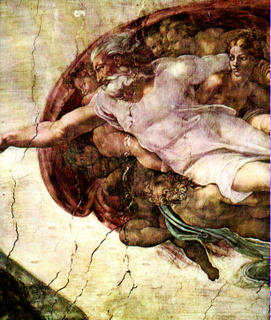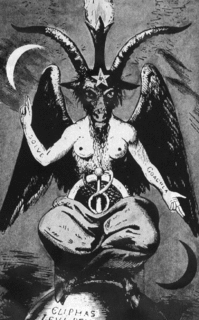(NON) EXISTENCE OF GOD - Part 4
(...continued from previous post. If it’s necessary check it from here) The idea of an Omnipotence is a part of the concept of deity; God, if he exists, is omnipotent. It is sometimes argued, however, that the concept of omnipotence is paradoxical, logically incoherent, and so that it is logically impossible that there be any being that is omnipotent. This position, if it can be sustained, precludes the existence of God. The argument that the concept of omnipotence is paradoxical is best introduced by presenting the theist with a dilemma. Any one of a variety of questions—e.g. "Can God create a rock so heavy that he cannot lift it?" or "Can God create a law that binds himself?"—might be posed in order to introduce this dilemma. We can test this paradox in a simple way:
The idea of an Omnipotence is a part of the concept of deity; God, if he exists, is omnipotent. It is sometimes argued, however, that the concept of omnipotence is paradoxical, logically incoherent, and so that it is logically impossible that there be any being that is omnipotent. This position, if it can be sustained, precludes the existence of God. The argument that the concept of omnipotence is paradoxical is best introduced by presenting the theist with a dilemma. Any one of a variety of questions—e.g. "Can God create a rock so heavy that he cannot lift it?" or "Can God create a law that binds himself?"—might be posed in order to introduce this dilemma. We can test this paradox in a simple way:1. God either can or cannot create a rock that is so heavy that he cannot lift it.
2. If God can create a rock that is so heavy that he cannot lift it, then God is not omnipotent.
3. If God cannot create a rock that is so heavy that he cannot lift it, then God is not omnipotent. Therefore:
4. God is not omnipotent.
5. If God exists then he is omnipotent. Therefore:
6. God does not exist.
The controversial premises of this argument are the second and the third. Proponents of the argument defend these premises in the following way. If God can create a rock that is so heavy that he cannot lift it, then there is something that he cannot do, namely lift the rock in question. If God cannot create a rock that is so heavy that he cannot lift it, then there is something that he cannot do, namely create such a rock. Either way, then, there is something that God cannot do, and if there is something that he cannot do then he cannot be omnipotent. The most common theistic response to this problem rests on the thought that omnipotence is limited by logical possibility. An omnipotent being, it is suggested, is one that can bring about any logically possible state of affairs. The existence of a rock so heavy that God cannot lift it, though, is arguably a logically impossible state of affairs. God’s inability to create such a rock, it is claimed, therefore does not count against his being omnipotent.
But these paradoxes are based on logical incoherencies and linguistic tricks, in fact don’t prove anything at all.
 Let’s look at the subject of Omniscience, with the discussion of evil. The problem of evil is the problem of reconciling the existence of the evil in the world with the existence of an omniscient, omnipotent and perfectly good God. The argument from evil is the atheistic argument that the existence of such evil cannot be reconciled with, and so disproves, the existence of such a God. If God exists, it is said, then he is omniscient, omnipotent and benevolent, why is there such an evil exist in the world? Therefore this argument tries to disprove that God exists. Let’s look bit closer:
Let’s look at the subject of Omniscience, with the discussion of evil. The problem of evil is the problem of reconciling the existence of the evil in the world with the existence of an omniscient, omnipotent and perfectly good God. The argument from evil is the atheistic argument that the existence of such evil cannot be reconciled with, and so disproves, the existence of such a God. If God exists, it is said, then he is omniscient, omnipotent and benevolent, why is there such an evil exist in the world? Therefore this argument tries to disprove that God exists. Let’s look bit closer:1. If God exists then he is omniscient, omnipotent and perfectly good.
2. If God were omniscient, omnipotent and perfectly good then the world would not contain evil.
3. The world contains evil. Therefore:
4. It is not the case that God exists.
Some attempts to solve the problem of evil are general, applying equally to all of its forms. It is sometimes argued, for instance, that God is not morally good, and so that the first premise of the argument from evil is false. The third premise has also been questioned; there are some that deny that evil exists. If either of these solutions is successful, then all forms of the argument from evil fail.
Of course the theists also rely on the idea of “free will” to explain evil in the world. Evil is not created by God but by human, and with “free will” man can chose between good and bad, right or wrong. With right choices man can pass this test and devil looses the game. It looks like a reasonable explanation but in fact it’s a very weak defense. First of all there is no such a thing as “free will”. It’s not the same thing with determinism. Because, even if our actions and thoughts depend on outside factors just a little bit, let’s say %1, then this claim of free will collapse. There are genetic, psychological, social, environmental factors which shows that our will is not exactly in our control. But even to reach heaven is in our hands, what is the meaning of such a ridiculous necessity of a priori? Ok, we’re created, there is such a powerful God. He created the world as a test for us, gave us a free will. But also created evil, so it’s a road with full of traps. And the one who didn’t pass the test gets the punishment (eternal punishment is also another absurd thought; punishing people in eternity for the things they’ve done in finite??? But anyway) and the one who did choose the right path comes closer to God… This is not an explanation, just a silly scenario. The main problem here is that the “merciful” God has started all of these in the first place! Once there was nothing and now suddenly these suffering human beings are here. This test wasn’t necessary at all, but God created it. Before that this Omniscient God argument is confusing; even if we DO have a free will and God KNOWS everything, then this test is not necessary. And if God’s knowledge is limited by our free will, then he is not omniscient, in any case he is not merciful.
In this way of reasoning we can also use Ockham’s razor to reject this kind of description of God. (Ockham’s razor -a scientific principal-, which tells us that where either of two equal explanations will do we should always prefer the simpler explanation). If we cannot prove neither God’s existence nor God’s non-existence, i.e. our thought about universe will have the same specifications even without him, and doesn’t cause any loss of knowledge, then we can choose the simpler alternative which is God’s non-existence. It is tempting to think that God’s existence is about as unlikely as anything could be. God, if he exists, is infinite in his attributes; in power, knowledge, and love—in his whole being—God is unlimited. Ockham’s razor recommends that wherever possible we should avoid postulating the existence of God to explain evidence. If there are two explanations of a set of evidence, one invoking God and the other not invoking God, then the explanation that doesn’t invoke God will always be the more economical of the two; it is more economical to postulate any number of finite beings than it is to postulate one infinite being. The hypothesis that God exists, then, seems to be as intrinsically unlikely as it is possible for a hypothesis to be.
Now the conclusion… Next post!
0 Noises:
Post a Comment
<< Home